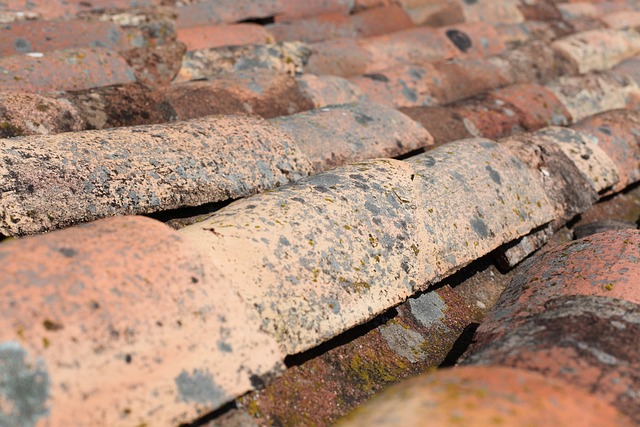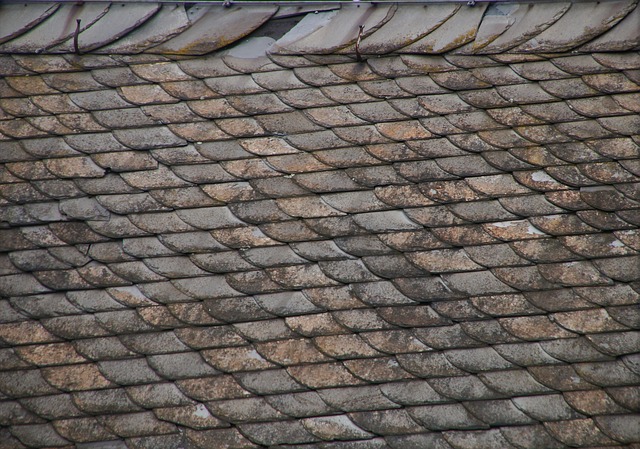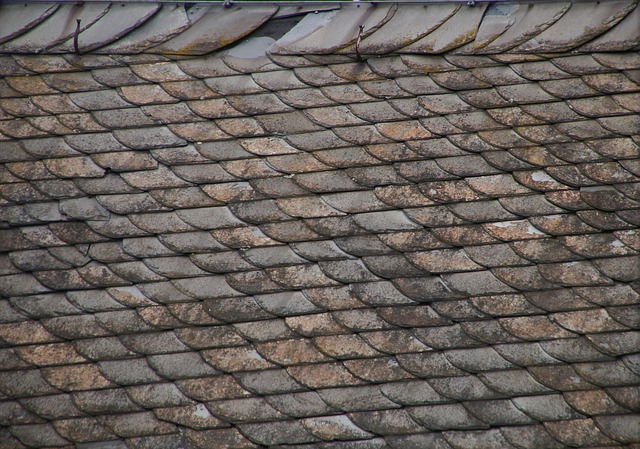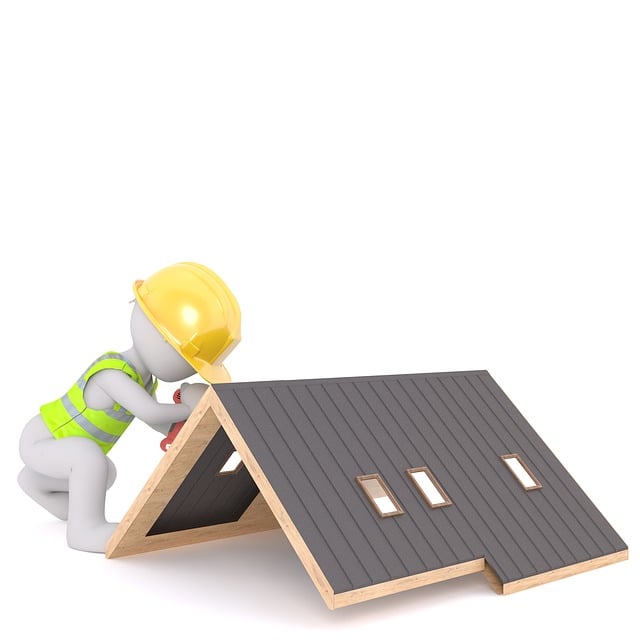Professional roofers are critical in modern construction, ensuring buildings withstand environmental pressures through their expertise in a variety of roofing systems. These include traditional asphalt shingles and green roofs that offer sustainability benefits. Roofers evaluate existing structures using advanced technologies like thermal imaging and drones before installation, guaranteeing new roofs are built to resist harsh weather conditions. They also provide essential maintenance advice and inform clients about the expected lifespan of their investments. With the shift towards green building practices, professional roofers have become even more vital in integrating eco-friendly solutions that boost energy efficiency, such as reflective roofing or rooftop gardens conducive to solar panels. Their knowledge extends to sustainable materials and methods, ensuring buildings are both functional and environmentally responsible. In commercial construction, their collaboration with architects and contractors is crucial for designing tailored roofing systems that meet specific needs. A roofer's role combines traditional craftsmanship with modern techniques to ensure successful project outcomes. Regular maintenance by skilled roofers is key for detecting issues early, thus preventing costly repairs or premature replacements and preserving the building's value. Whether choosing a traditional asphalt roof or an innovative green roof, the guidance of a professional roofer is essential for making informed decisions that align with sustainability goals and client expectations.
When it comes to safeguarding residential and commercial structures, the integrity of the roof cannot be overstated. Professional roofers play a pivotal role in ensuring buildings stand strong against the elements. This article delves into the multifaceted world of roof installations, from the latest innovations in commercial roofing techniques to the meticulous process of replacing a residential roof. We explore the importance of regular inspections, the variety of roof types available, and the critical steps involved in a professional installation. Whether you’re a homeowner or a business owner, understanding the nuances of roof replacement is essential for making informed decisions that balance functionality with cost. Join us as we navigate through selecting the right materials, evaluating structural requirements, and maintaining your new roof to extend its lifespan. With expert insights and practical advice, this comprehensive guide ensures you are well-equipped to handle any roofing project with confidence.
- Understanding the Role of a Professional Roofer in Modern Construction
- The Importance of Regular Roof Inspections for Residential and Commercial Properties
- Types of Roofs: From Traditional Asphalt to Advanced Green Roofing Systems
Understanding the Role of a Professional Roofer in Modern Construction
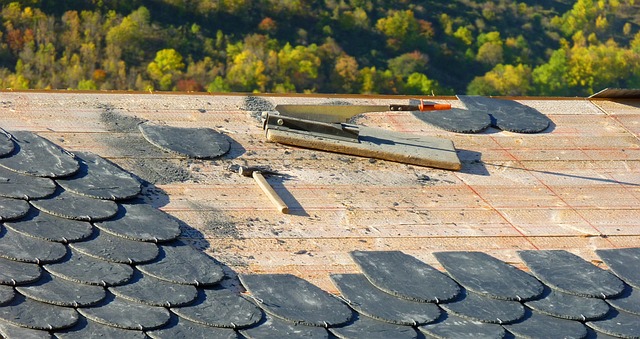
In modern construction, professional roofers play a pivotal role in ensuring that residential and commercial buildings are safeguarded from the elements. These skilled tradespeople specialize in a variety of roofing systems, from traditional asphalt shingles to advanced green roofing solutions. Their expertise encompasses not only the installation process but also the assessment of structural integrity, selection of suitable materials for specific environments, and adherence to local building codes and regulations. A professional roofer’s understanding of modern materials like composite shingles, metal roofing, and sustainable options is crucial for both functionality and longevity. They are adept at utilizing technology to assess the condition of existing roofs through thermal imaging or drone surveillance before installing new systems that can withstand environmental pressures such as high winds, heavy snowfall, and extreme temperatures. Their role extends beyond physical installation; it includes providing clients with informed recommendations on maintenance and longevity expectations for their investments.
The advent of green building practices has further underscored the importance of professional roofers in modern construction. They are now integral to implementing eco-friendly roofing solutions that contribute to energy efficiency, such as reflective roofing that reduces heat absorption or systems designed to support rooftop gardens and solar panels. Their knowledge of sustainable materials and installation techniques ensures that buildings not only fulfill their functional purpose but also align with environmental conservation efforts. In the realm of commercial construction, where large-scale projects demand precision and efficiency, professional roofers’ skills are indispensable. They work alongside architects and contractors to create customized roofing solutions that meet both the building’s needs and any specialized requirements of its occupants. The role of a professional roofer in modern construction is multifaceted, requiring a blend of traditional craftsmanship with contemporary knowledge and techniques to achieve successful project outcomes.
The Importance of Regular Roof Inspections for Residential and Commercial Properties
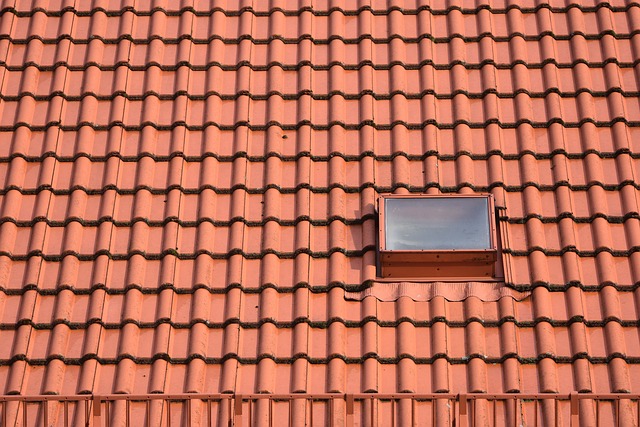
Roofing systems are critical components of both residential and commercial buildings, serving as their first line of defense against the elements. A roofer plays a pivotal role in ensuring the integrity and longevity of these structures through regular inspections and maintenance. For homeowners, the stability and security provided by a well-maintained roof cannot be overstated. It safeguards the dwelling from weather-related damage, preventing interior water intrusion that could lead to costly repairs or health hazards such as mold growth. Similarly, for commercial properties, a robust roofing system is indispensable. It not only protects valuable assets and merchandise from environmental factors but also ensures business operations proceed uninterrupted by maintaining a stable environment.
Regular inspections by skilled roofers are instrumental in preemptively identifying potential issues before they escalate into larger problems. These professionals conduct thorough examinations to detect signs of wear, such as cracked shingles or deteriorating flashing, which could compromise the structure’s waterproofing capabilities. The frequency of these inspections can vary depending on factors like the roof’s age, material, and exposure to environmental stressors. By engaging a roofer for routine maintenance, property owners can extend the lifespan of their roofs, maintain structural integrity, and avoid unnecessary expenses associated with emergency repairs or premature replacement. This proactive approach not only ensures the safety and comfort of inhabitants but also contributes to the overall value and longevity of the building.
Types of Roofs: From Traditional Asphalt to Advanced Green Roofing Systems
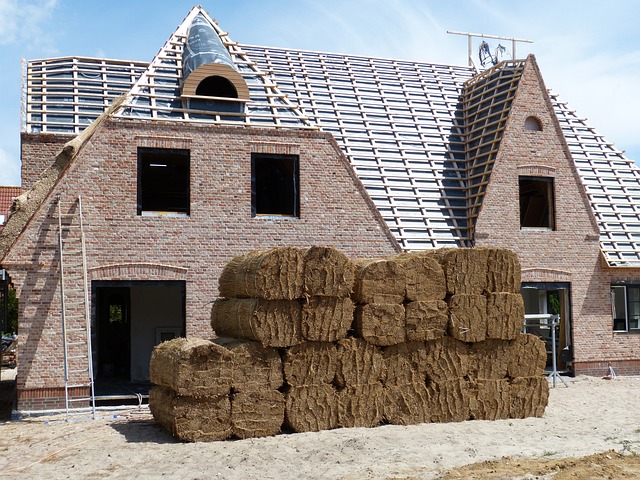
When it comes to safeguarding and enhancing buildings, roofing plays a pivotal role. A roofer’s expertise is paramount in installing roofs that not only protect against the elements but also contribute to energy efficiency and aesthetics. Traditional asphalt roofing remains a popular choice for its durability and cost-effectiveness, offering a tried-and-true solution for residential and commercial properties alike. However, modern building practices and environmental concerns have led to the emergence of advanced green roofing systems. These innovative systems not only provide insulation and extend the lifespan of a building but also offer ecological benefits by supporting vegetation and contributing to urban biodiversity. A roofer skilled in the installation of these systems can transform a typical roof into an eco-friendly asset, effectively integrating green technology with architectural design. The selection between traditional asphalt or advanced green roofing systems often depends on the building’s purpose, location, and the client’s sustainability goals. A roofer adept in both conventional and cutting-edge roofing solutions can guide clients through this decision-making process, ensuring that the chosen system aligns with their needs and values. Whether opting for the classic reliability of asphalt or embracing the forward-thinking approach of green roofs, a professional roofer’s expertise is essential in achieving a successful outcome.
In conclusion, the role of a professional roofer in modern construction continues to evolve, with innovative green roofing systems gaining prominence. Regular inspections by seasoned roofers are indispensable for maintaining both residential and commercial buildings’ structural integrity and energy efficiency. Homeowners and business owners alike benefit from the expertise of these professionals, ensuring their properties remain secure and sustainable for years to come. As we look to the future, it’s clear that the roofing industry is poised to adapt to new challenges and advancements, with a focus on environmental stewardship and resilient design.
